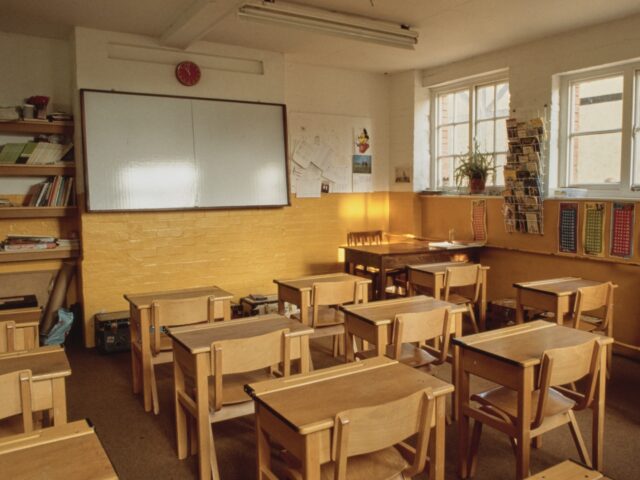LONDON (AP) – The British government has ordered more than 100 schools to keep some or all of their buildings closed when the new academic year begins next week because of concern that crumbling concrete threatens the safety of children and staff.
The announcement late Thursday sent school administrators scrambling to find ways to accommodate pupils, with some expected to return to the online instruction used during the COVID-19 pandemic. The timing of the decision, just days before the start of classes, raised questions from parents and school officials about why the government didn’t act sooner.
Schools Minister Nick Gibb told the BBC that a beam collapse over the summer sparked an urgent reconsideration of whether buildings constructed with reinforced autoclaved aerated concrete were safe for school children.
The Department for Education ordered 104 schools to keep some or all of their buildings closed when the autumn term begins Monday.
“That’s a very cautious approach, so parents can be confident that if they’ve not been contacted by their school, it is safe to send children back into school,” Gibb said.
The aerated concrete, known as RAAC, is lighter and less expensive than standard reinforced concrete and was widely used in schools, hospitals and other public buildings from the 1950s to the mid-1990s. But RAAC is also weaker than other materials and has a useful life of about 30 years, which means many of these structures now need to be replaced.
Britain´s government has been aware of the problem since 1994 and started monitoring the condition of public buildings in 2018.
The Department for Education began a survey of school buildings last year to identify those built with RAAC. More than 50 school buildings had previously been closed due to concerns about such concrete.
Given this, many were angered by the timing of Thursday’s announcement.
“It is absolutely disgraceful, and a sign of gross government incompetence, that a few days before the start of term 104 schools are finding out that some or all of their buildings are unsafe and cannot be used,” Daniel Kebede, general secretary of the National Education Union, said in a statement.
The opposition Labour Party demanded that the Conservative-led government name all the affected schools. The government has so far declined, with Gibb saying a list will be published once the schools are in “a stable place.”
Phil Purnell, a professor of materials and structures at the University of Leeds, said the problem is primarily due to a lack of proper maintenance, which allows water to seep into the bubbles inside aerated concrete. The material can also fail more suddenly than timber steel or normal concrete, “with very little warning.”
“This is a concerning situation, but the root cause is not the material, but poor maintenance and squeezed school budgets for building upkeep,” Purnell said. “Similar problems will exist for steel, timber and other roof material types. All materials deteriorate much more quickly if maintenance is skipped.”

COMMENTS
Please let us know if you're having issues with commenting.